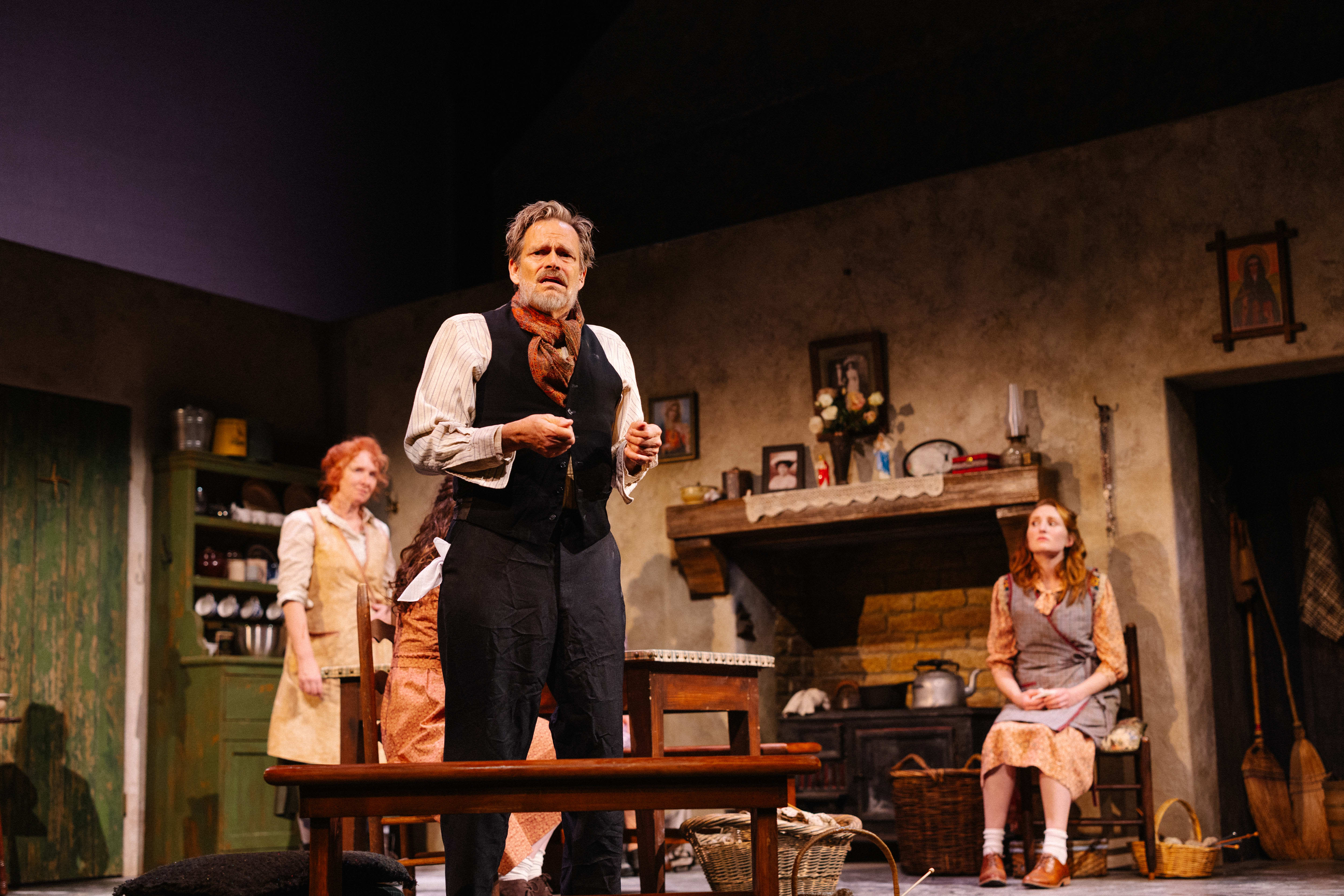Asolo Rep's 'Good Night, Oscar' Introduces the Talented, Troubled Oscar Levant

Image: Adrian Van Stee
There are probably, unfortunately, many younger people who don’t know who Oscar Levant was. But for the Asolo Rep audience, chances are a good number recall the musician, raconteur and pianist, as famous for his talk-show television appearances as for his performances in concerts and onscreen.
So they should find playwright Doug Wright’s compacted look at Levant, Good Night, Oscar, now onstage at the Asolo, a refresher, and often refreshing, look at the amusing but troubled Oscar. In Wright’s telling, packaged into one night before, during and after Levant’s appearance on a live Jack Paar Tonight Show, Oscar is on a brief pass from a mental health facility to appear on the program, even though he’s obviously in no shape to do it. Battling various psychological demons, and always feeling overshadowed by his early-dying friend and idol, George Gershwin, Oscar is a mess—but one who can still make audiences laugh with his witty lines, often at his own expense.
Oscar (played here by Max Roll, who understudied the role for Sean Hayes on Broadway) is surrounded by people who may think they’re helping him, in their various ways, but modern-day viewers have to wonder how much of their aid is enabling.

Image: Adrian Van Stee
There’s his long-suffering wife, June (Gail Rastorfer), who still loves him but doesn’t know if she can go on living with his illness and addictions. There’s NBC executive Bob Sarnoff (David Breitbarth, back at the Asolo after an absence), who’s ready to ring up Xavier Cugat to take Oscar’s place at a moment’s notice. (Sarnoff also tries to direct Levant and Paar not to touch on the topics of politics, religion or sex during their on-air chats. Good luck with that.) There’s Sarnoff’s inept, starstruck nephew Max (Jonathan Acosta), too easily taken in by a wily Oscar. And there’s orderly Alvin Finney (Ibukun Omotowa), who seems genuinely concerned for Levant’s well-being, but also needs to take care for his own future if things go wrong with his difficult patient.

Image: Adrian Van Stee
And then there’s Paar himself (Sasha Andreev), who may also be fond of Oscar but is driven by ratings and a desire to keep taping his show in New York, rather than making a move to Los Angeles, as Sarnoff wants. It’s a lot to get into an approximately 100-minute, intermission-less show, and the first half of Good Night, Oscar feels a little packed with exposition, as well as starting off with a pitch and energy that doesn’t leave a whole lot of room for escalation.
But for those who do recall Levant’s persona on stage and screen, the play also provides insight into his struggles behind the scenes—as a real, suffering person haunted by voices and hallucinations, especially from a prowling, ghostly Gershwin (Harris Milgrim). The production’s supporting actors all have their moments in the spotlight, but Roll as Oscar remains the center of the show, even before he actually enters the stage in typical rumpled Levant style. Roll needs to be quick with a quip, compelling in his more dramatic scenes, and able to play the piano with Levant-like skill. He accomplishes all of that with finesse.
Robert Perdziola’s scenic design allows the production’s ensemble to smoothly switch from backstage to on-set to places in Oscar’s mind, and his costume designs evoke the late 1950s era. Peter Amster’s direction is adroit and fast-moving without stinting on the emotional impact. Watching Good Night, Oscar left me wanting to read his memoir, to learn more about the man we all thought was so effortlessly funny, decades ago.
Good Night, Oscar continues through April 26. For tickets, call (941) 351-8000 or visit asolorep.org.



